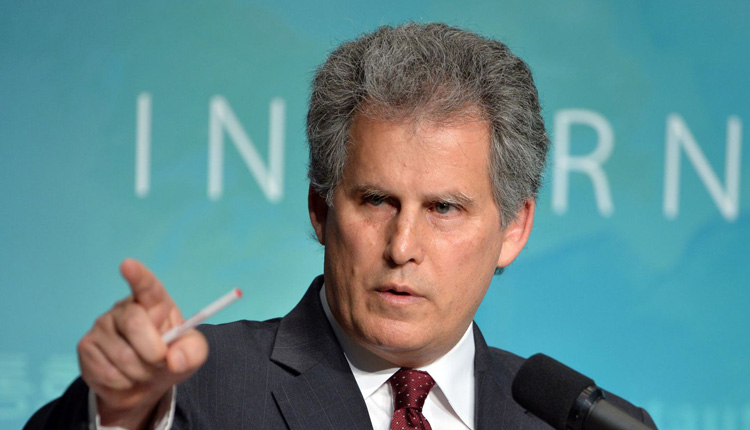The First Deputy Director-General of the International Monetary Fund (IMF), David Lipton, hailed on Wednesday Egypt’s progress in implementing the economic reform programme.
Lipton said what Egypt has done is appreciated by the IMF and expresses a political will that has a vision and is keen to move ahead with efforts to build a strong and competitive economy.
This came during Lipton’s meeting with Prime Minister Moustafa Madbouly, in the presence of the ministers of investment and international cooperation and tourism, on the sidelines of the World Economic Forum in Davos, Switzerland.
Madbouly expressed the appreciation of President Abdel Fattah al-Sisi for the cooperation between Egypt and the IMF, as well as the successes that have so far benefited the Egyptian economy, which has now gained a competitive position and is attractive to investments.
Madbouly said the government is keen to continue the success of the economic reform programme to maintain the momentum generated by the implementation of the programme, and therefore will continue to receive technical support from the IMF after the conclusion of the program.
Lipton welcomed this trend, stressing that this will preserve the gains of the programme and prevent any decline of growth achieved by Egypt.
Egypt began implementing the IMF reform programme in November 2016. The international lender made a deal to provide Egypt with a $12 billion loan in exchange for wide-ranging structural economic reforms.
The reforms include a raft of measures such as devaluing the Egyptian currency, loosening capital controls, ending energy subsidies, reforming public enterprises and overhauling monetary policy – all in a bid to restore economic stability and long-term growth.
The first step the IMF commended was the flotation of the pound, a measure taken in November 2016. The following year Egypt slashed parts of its energy subsidies, resulting in a 60 percent surge in fuel prices.
The IMF has since recommended that the government continue removing subsidies on fuel.
Source: Al-Masry Al-Youm
